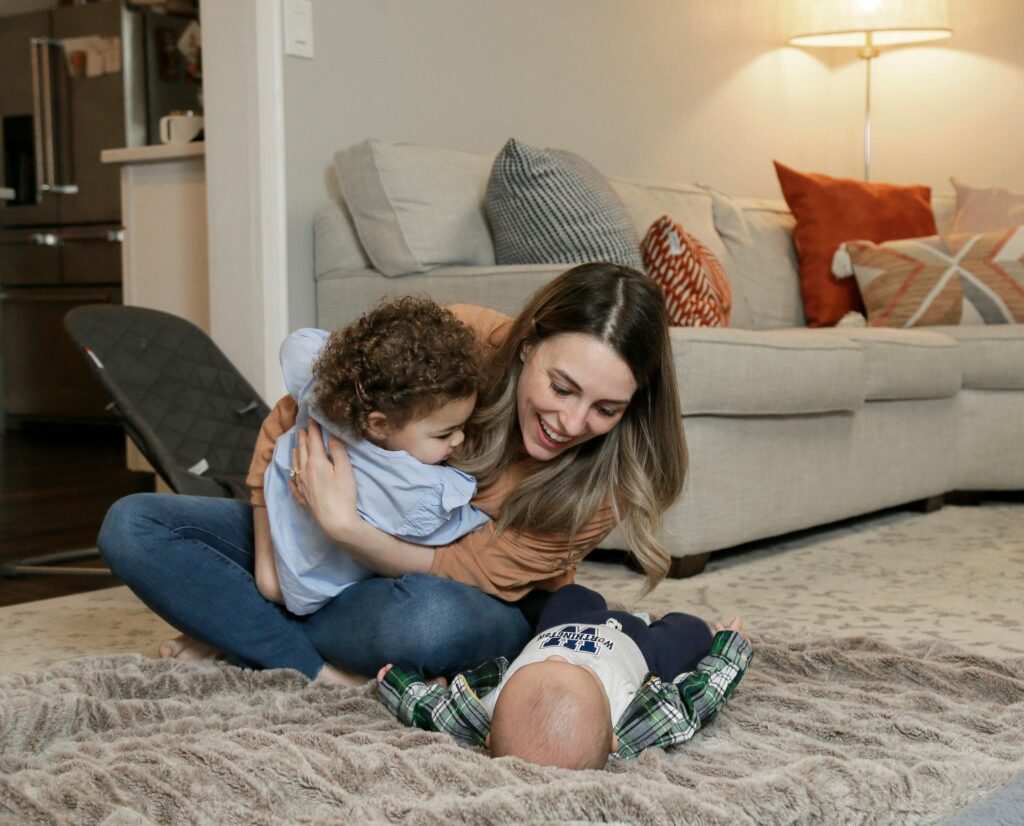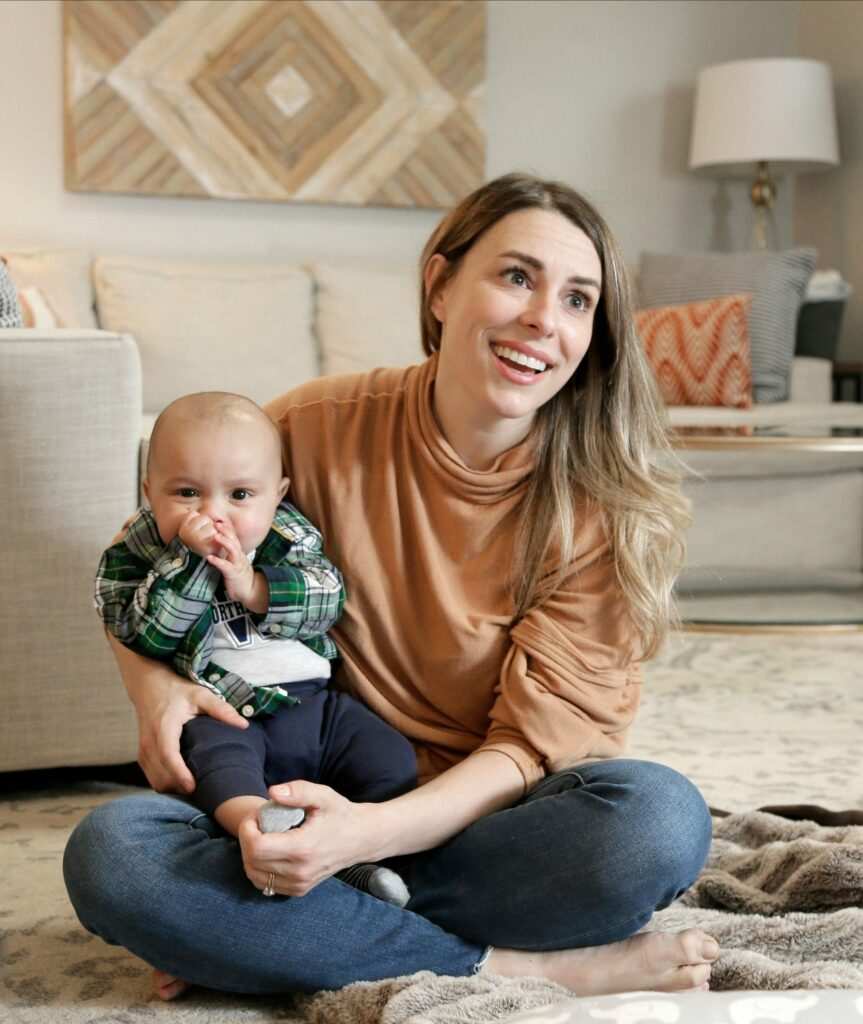Jessica Ansari spread the velvety soft blanket atop the thick-padded rug on the living room floor and gently laid Noah down on his back. As the baby gazed up at her with his big brown eyes, he let loose a tiny burp and then stuck a finger in his mouth. And then another finger. And then another.
Jessica just shook her head as she spoke of the probably $100 she has spent on pacifiers, and yet Noah rejects them all.
“It’s all about his fingers. About all of his fingers,” she said laughing. But then big sister Emily plopped down and started rubbing her brother’s belly, prompting a kind smile and a gentle “be soft with him” from Mom.

Gentleness is key here because a genetic immunodeficiency keeps Noah’s little body fragile. Wiskott-Aldrich syndrome is so rare that doctors say it is diagnosed in as few as 10 of every 1 million births. Because it compromises the immune system, those who have it are prone to infections and allergies, and are at higher risk for blood cancers such as leukemia. Severe skin eczema is another byproduct.
But the syndrome, caused by a genetic mutation that affects males (though females can be carriers, as Jessica now knows she is), also means that a body’s platelets are small in both size and number so its blood doesn’t clot. Internal bleeding is a very real concern. Once he starts crawling, the Ansari family will even have to make sure Noah wears a helmet to protect his brain.
He regularly takes antibiotics and must get occasional intravenous immunoglobulin blood therapies, but otherwise — in size, development and personality — he thrives.
“He giggles and laughs and is happy and brings us all so, so much joy,” said Jessica, who with her husband, Amin, raises their children in their home on the Far North Side near Worthington and Powell.

“We try our best to protect Noah but also enjoy him. We spend our time being cautious but not paranoid. We live our lives with purpose and with faith.”
But these past five months certainly have been a challenge unlike any either of the parents had faced, and even for the rambunctious Emily, who will be 2 in just a few days.
“Noah bleeds so easily that everything, even a tiny scratch on his face from a fingernail, is traumatic. And there’s been a lot of tears,” said Jessica, 33. “We did the best we could to not make Emily feel like something was wrong, but with the initial diagnosis it was really hard for us to deal with. I cried all the time.”
But the couple, in spite of the shock of their situation, also immediately got to work.
Wiskott-Aldrich certainly can be a death sentence. But a bone marrow/stem cell transplant would give Noah the best possible chance at a long, normal and healthy life.
The search is on for a match. But Amin, a 38-year-old full-time medical plans and operations officer in the Ohio Air National Guard, is biracial. And that makes finding a donor match much more difficult.
About 10,000 people every year need a lifesaving bone marrow transplant, and typically about 6,600 of them are matched. But that ratio drops significantly for African Americans, where the chances of finding a suitable donor drops to as low as less than 23%, according Erica Sevilla, spokesperson for Be The Match, the world’s largest marrow donor registry.
Because the success of bone marrow transplants rests on the matching of genetic markers, ethnicity does play a role because similar genetic roots matter.
“A mixed-race child adds some complexity to finding a match,” Sevilla said.
The Ansaris, meanwhile, quickly have become tremendous advocates for themselves and ambassadors for the program, Sevilla said.
“They have just worked so hard to spread the word about the registry that while I know we will find a perfect match for Noah, it’s also so important that by sharing his story, they are helping to save other lives by just raising awareness about the need,” she said.
Joining the registry is a simple process: You can sign up and answer a few questions online, and a kit with two cotton swabs meant to be used on your cheeks will be mailed to you.
There are about are 22 million members on the registry right now and, typically, about 1 in 430 of them will actually be matched and go on to donate, Sevilla said.
Though when you sign up it is with the commitment that you will donate to anyone, but donating in a specific name (in this case, Noah’s) can be a meaningful show of support and a boost for families at a tough time, Sevilla said.
To sign up in Noah’s: text savenoah to 61474 to receive a special link or visit a special online link or visit https://join.bethematch.org/savenoah
The Ansaris have been grateful for the support of Be The Match staff, and especially Sevilla, who lives locally. Getting connected to the small but tight-knit worldwide community of other Wiskott-Aldrich families has been an equal saving grace, Jessica said. And the support of so many others cannot be overestimated.
“We definitely are not doing this alone,” she said.
Though she is taking the school year off from her first-grade teaching job at Worthington Hills Elementary to care for Noah and reduce his exposure to infections and viruses, Amin’s military job means he is sometimes away. So Jessica’s mother stays with the family to help out.
“Everyone has rallied around them to support them,” Debbie Brewer said of her daughter’s family. “Family, her friends, Noah’s team of doctors. That network and a lot of prayer gets them through.”
Jessica said that although this has all been frightening, she thinks the early diagnosis was a blessing.
Noah was born with a hematoma on his head, but neither doctors nor the family were immediately alarmed. But before long, he developed an infection and an abscess, and soon another. And at about 6 weeks old, he had his first stay at Nationwide Children’s Hospital, leading to a quick diagnosis.
“It’s a world that no one can ever really understand until you are a part of it,” Jessica said. “And we didn’t have a choice so we just immersed ourselves into learning right away how to give him the best possible chance.”
Noah’s platelet count had been in the 50s (normal can range from 150 to 400) but has been dropping; it’s about 17 now. If it were to drop into the single digits, an immediate emergency bone marrow transplant would be necessary.
Be the Match has identified an eligible donor, but it is not a perfect 10/10 match on the scale that is used.
“Since Noah is such a little guy who has his entire life ahead of him, finding an ideal 10 of 10 match is really important to make sure he has the best possible outcome to live a long, long life,” Sevilla said.
So they will keep searching. And Jessica and Amin will keep praying. And Emily will keep playing. And Noah will keep sucking his fingers, blowing spit bubbles and giggling. And the Ansaris will keep working hard every day at being grateful.
“I think about all those families out there with sick children who don’t have an option,” said Jessica as she softly rubbed Noah’s belly, bringing a coo. “We have a diagnosis. We have a transplant option. We have hope.”
___
(c) 2021 The Columbus Dispatch
Distributed by Tribune Content Agency, LLC.



